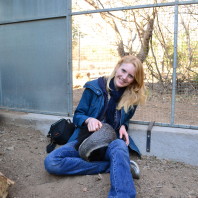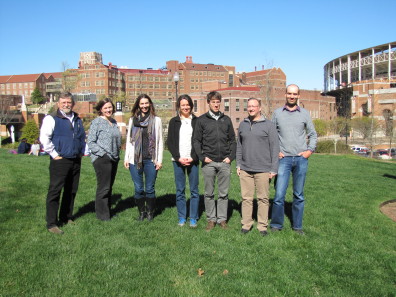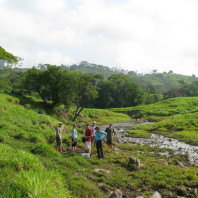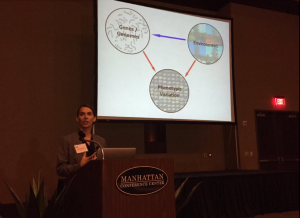 Congratulations to Alex Fraik who has been selected to receive a 2016 National Science Foundation (NSF) Graduate Research Fellowship!
Congratulations to Alex Fraik who has been selected to receive a 2016 National Science Foundation (NSF) Graduate Research Fellowship!
The NSF Graduate Research Fellowship Program recognizes and supports outstanding graduate students in NSF-supported science, technology, engineering, and mathematics disciplines who are pursuing research-based Master’s and doctoral degrees at accredited United States institutions.
In Alex’s words: “For my dissertation, I propose to determine how adaptive genomic variation varies spatially across the geographic range of the Tasmanian devil. I will use genome scan methods to identify candidate loci that are targets of selection in devil populations. Using statistical outlier test I will identify loci in devils associated with tumor haplotype to test for adaptation of disease strain to host genome. I will conduct RNA-sequencing on samples collected across environmental gradients and on devils infected with different tumor strains to determine if there are differences in gene expression indicative of clinal adaptation to local environments, and association of tumor strain to host genomes, respectively.”



